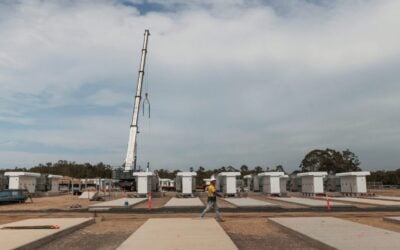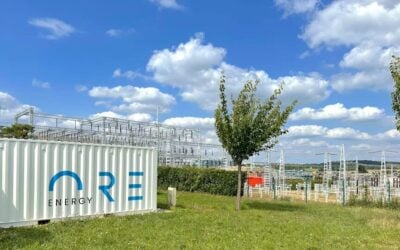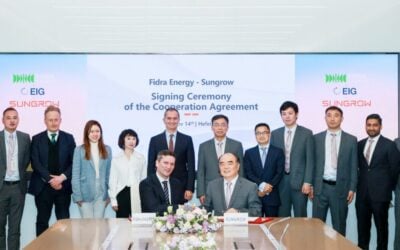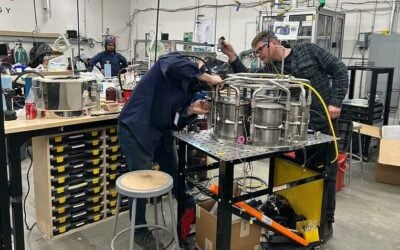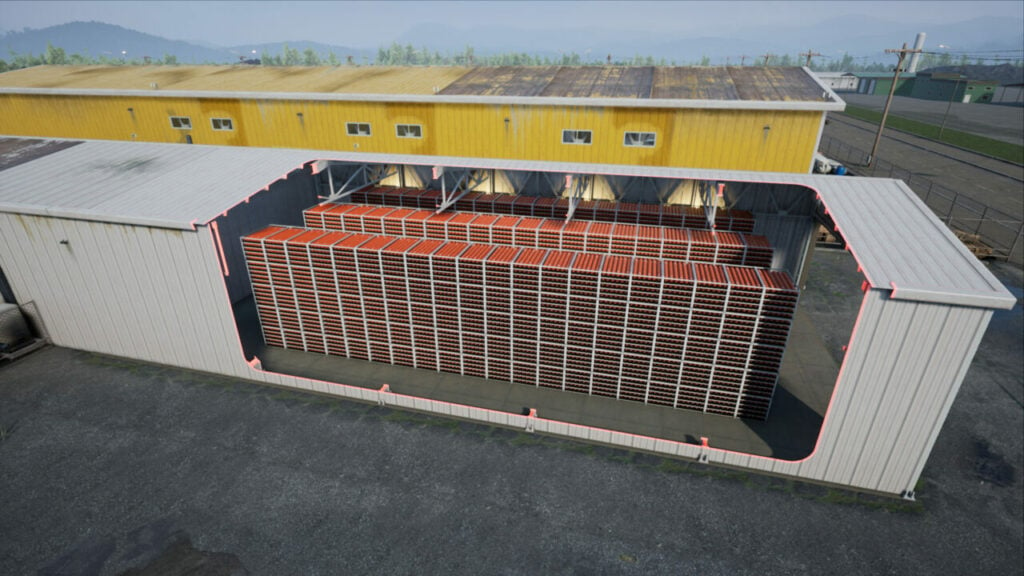
Enervenue, the US company commercialising technology adapted from nickel-hydrogen batteries used in space exploration, has signed a three-year Master Supply Agreement (MSA) with a customer in Brazil.
The deal marks Enervenue’s entry into South America, with the company to date having executed around 7GWh of deals with customers mostly in the US ahead of mass production of its nickel-hydrogen energy storage ‘Vessels’, racks and systems starting at a new factory in Kentucky.
Enervenue claims its Vessels – essentially the cells of the storage system – can withstand 30,000 duty cycles and handle long-duration energy storage (LDES) applications as well as high power shorter duration applications over many years of use.
The new deal is a three-year MSA signed with Vedanta Energy Storage Systems (Vedanta ESS), which is headquartered in Sao Paolo, Brazil. Vedanta claims to be a battery storage specialist deploying projects in Brazil and South America, although a company website lists very little information.
Try Premium for just $1
- Full premium access for the first month at only $1
- Converts to an annual rate after 30 days unless cancelled
- Cancel anytime during the trial period
Premium Benefits
- Expert industry analysis and interviews
- Digital access to PV Tech Power journal
- Exclusive event discounts
Or get the full Premium subscription right away
Or continue reading this article for free
It has no company address or executives named, nor does it refer to any projects in the company’s track record to date but the website does suggest however that Vedanta ESS is seeking to deploy two main technologies: iron redox flow batteries and nickel-hydrogen.
Vedanta ESS will procure and deploy 525MWh of Enervenue Energy Storage Vessels (ESVs), from 2024 through 2026. It will do so on an increasing scale, buying 75MWh in the first year, 150MWh in the second and 300MWh in the final year.
Use cases will include distributed generation, off-grid sites, commercial and industrial (C&I) and utility-scale applications.
Enervenue chief revenue officer Randy Selesky said that its Brazilian customer understood the need for long-duration energy storage to “go beyond lithium” and that Vedanta ESS has been growing its company around sourcing workable alternatives for customers, which perhaps explains the Sao Paolo-based provider’s stealth-like approach to maintaining an online presence to date.
Vedanta ESS aims to provide end-to-end service for customers, carrying out everything from project design and management which includes providing software to manage storage assets, assembling battery solutions, carrying installation and offering technical support, and more.
“At VedantaESS, our mission is solving the significant renewable energy challenges that Brazil faces by strategically applying innovative-yet-proven technologies. With its unique metal-hydrogen batteries, EnerVenue’s solutions provide tremendous longevity, reliability, safety, cost-efficiency and, importantly, flexibility,” Vedanta ESS president Richard Philips said.
While Enervenue’s technology is still at an early stage of reaching the market, interest in the company from investors and prospective customers alike has been lively.
The company itself came out of stealth mode in mid-2020 touting its durable and long-living technology, which Enervenue claims is also low-cost, made with abundant materials (the amount of nickel used is fairly small) and can cope with very flexible rates of discharge from 5C down to C/10+.
After raising US$100 million in a 2021 Series A funding round, it has since done deals such as a 2.4GWh order for renewables developer Pine Gate Renewable Energy and a number of other disclosed and undisclosed orders.
Enervenue announced its Kentucky factory in March this year, which it hopes to scale up to 20GWh annual production capacity, the vessels got their UL 1973 certification shortly after that, and the company launched a warranty for 20-years or 20,000 cycles of battery use, thought to be a first for the industry.
CEO Jorg Heinemann told Energy-Storage.news in an interview back in the summer of 2022 that due to its various technology advantages, the Enervenue nickel-hydrogen technology could even beat lithium-ion for supremacy in the stationary storage space. The company launched the newest iteration of its technology a couple of months ago.
This article has been amended from its original form to reflect that Vedanta ESS is focusing on nickel-hydrogen and iron redox flow battery technologies, not nickel-hydrogen and vanadium redox flow, as was previously stated.

